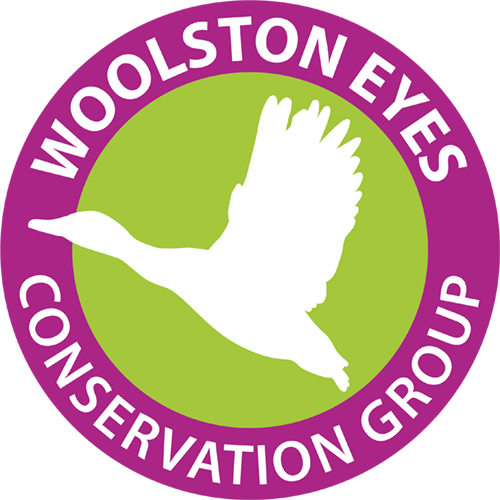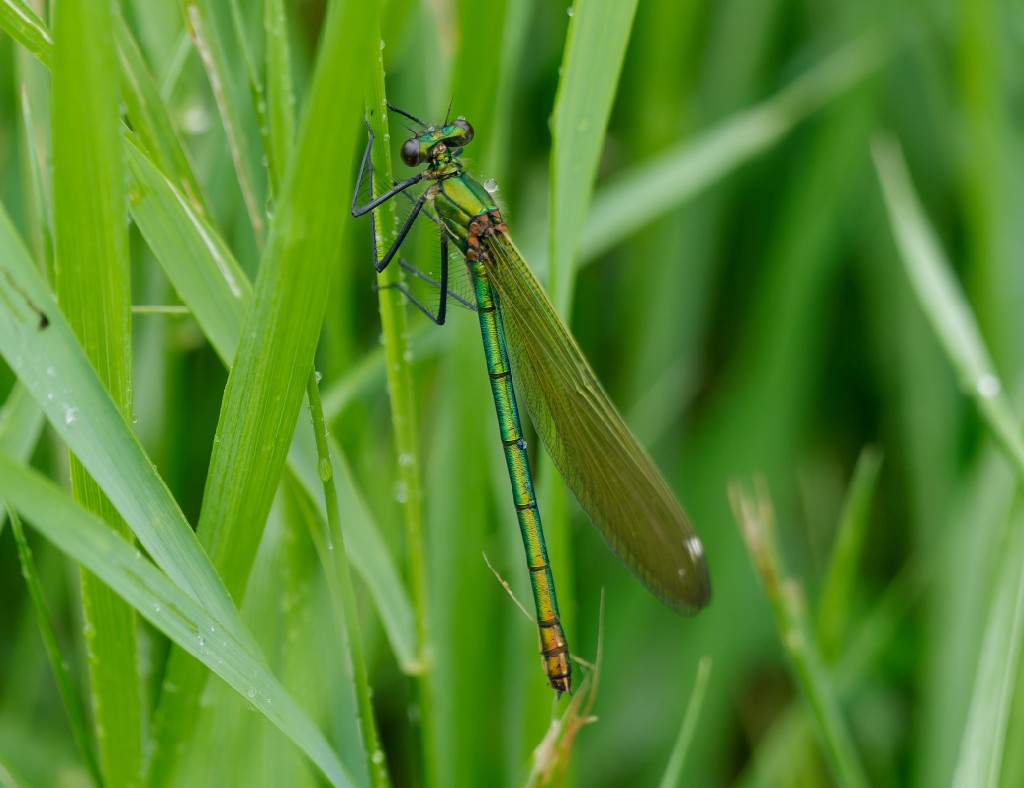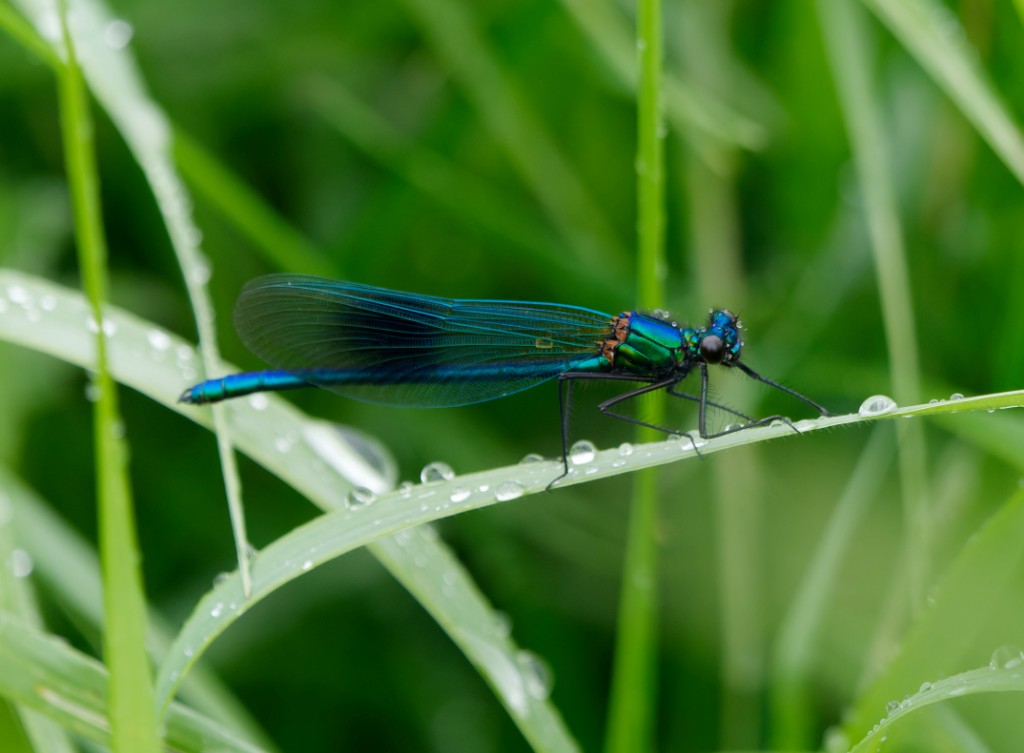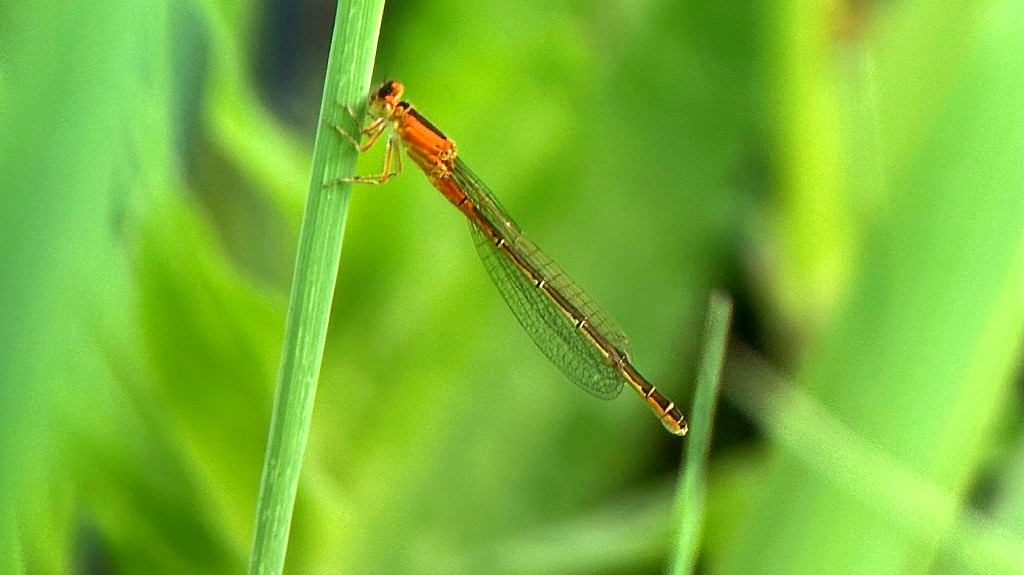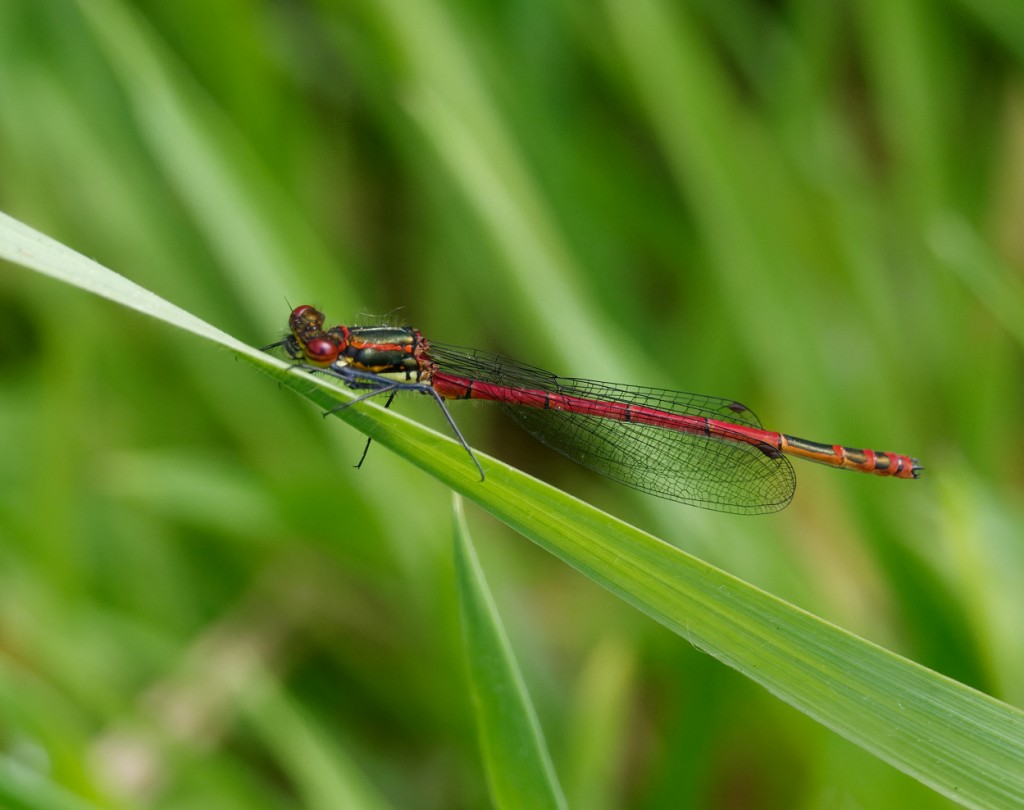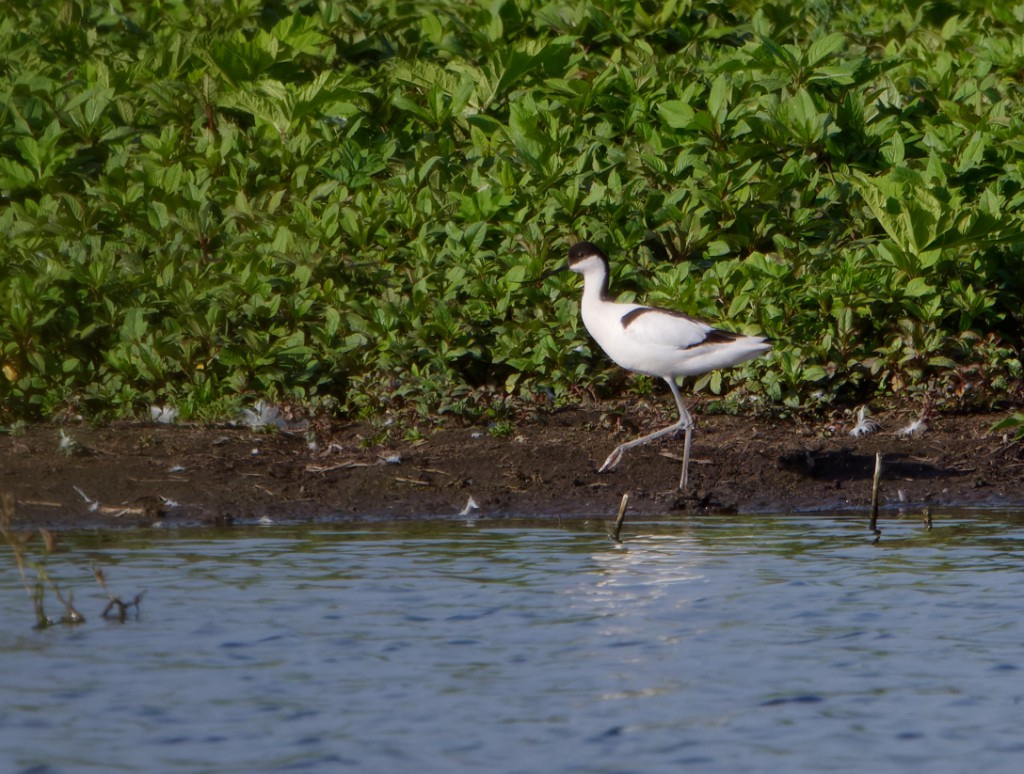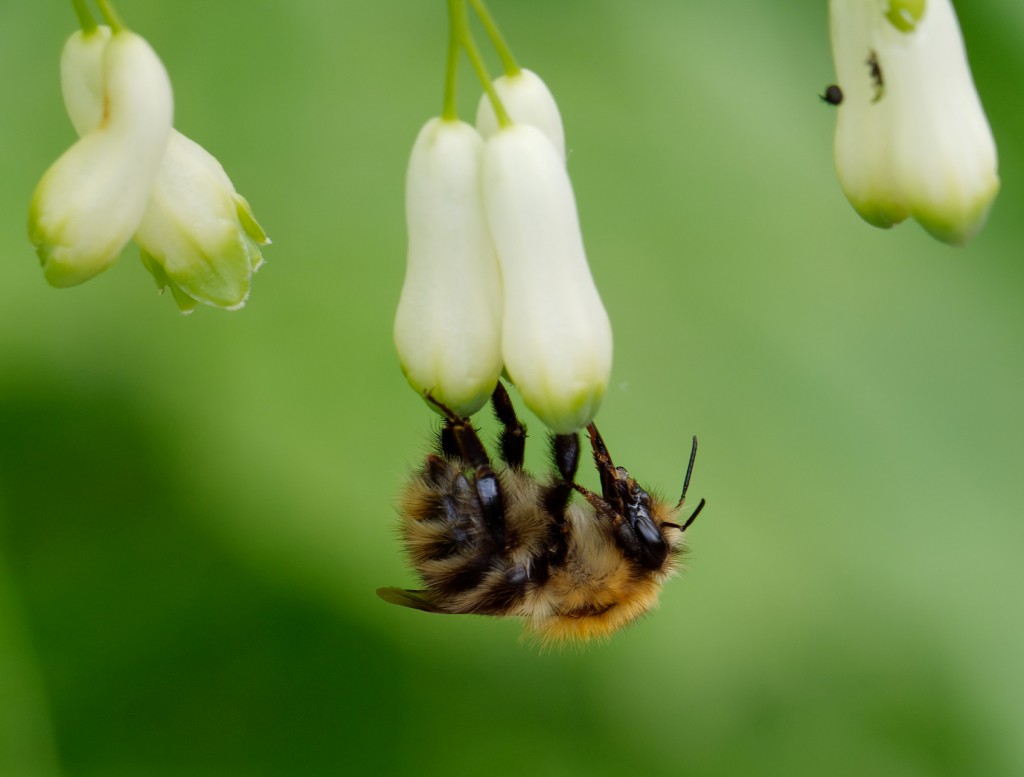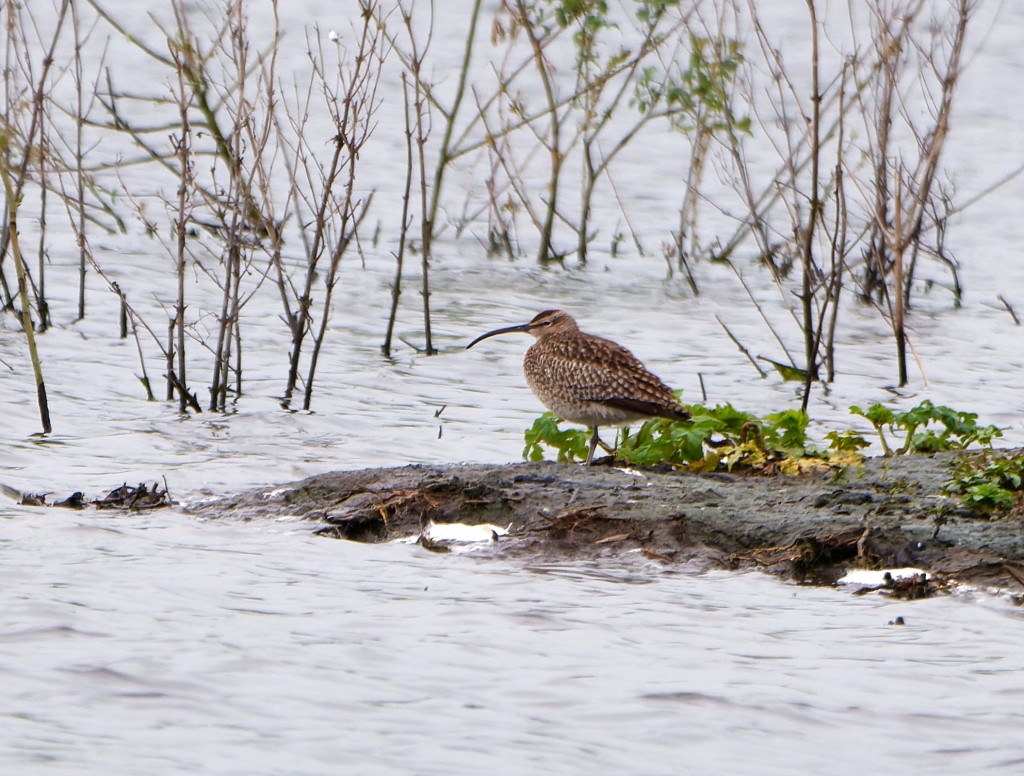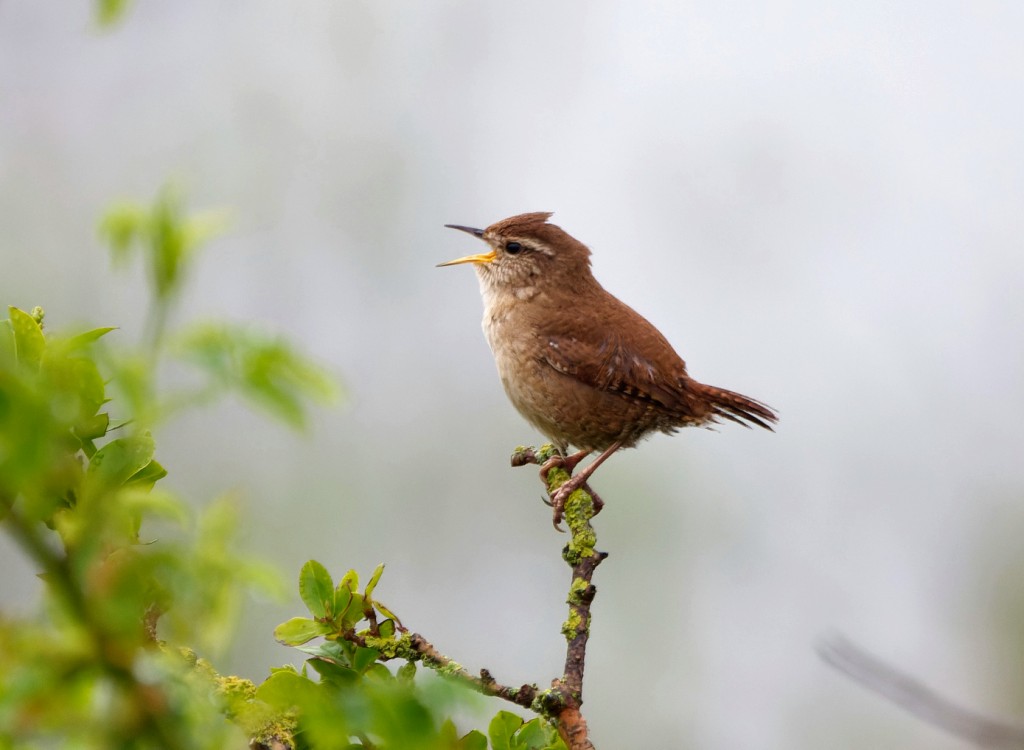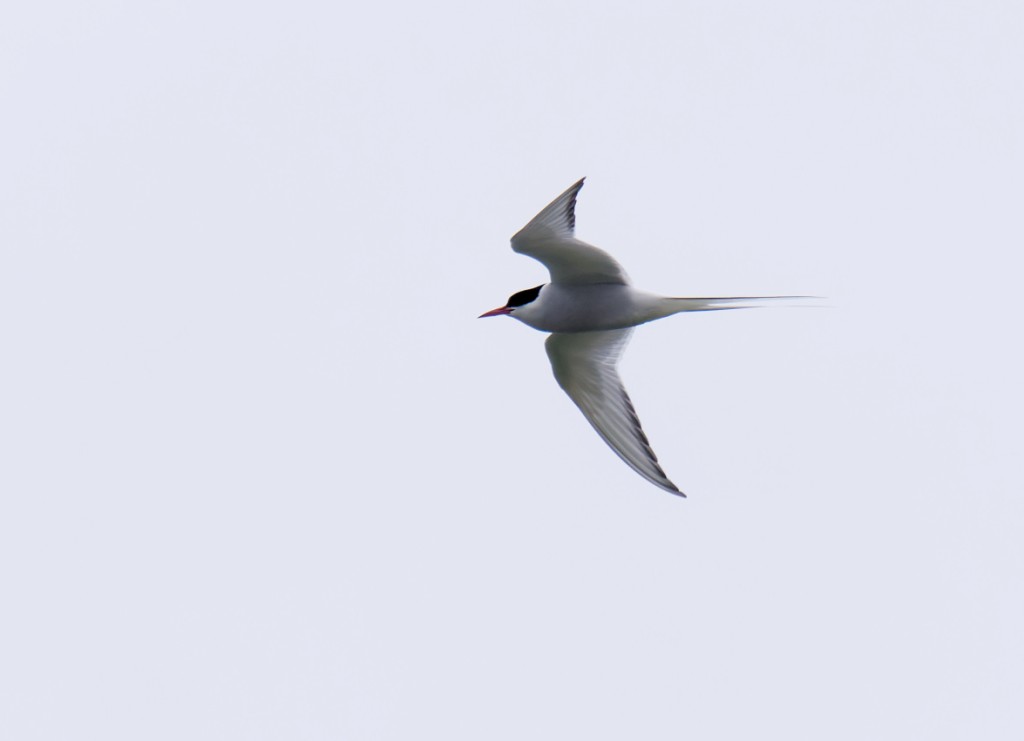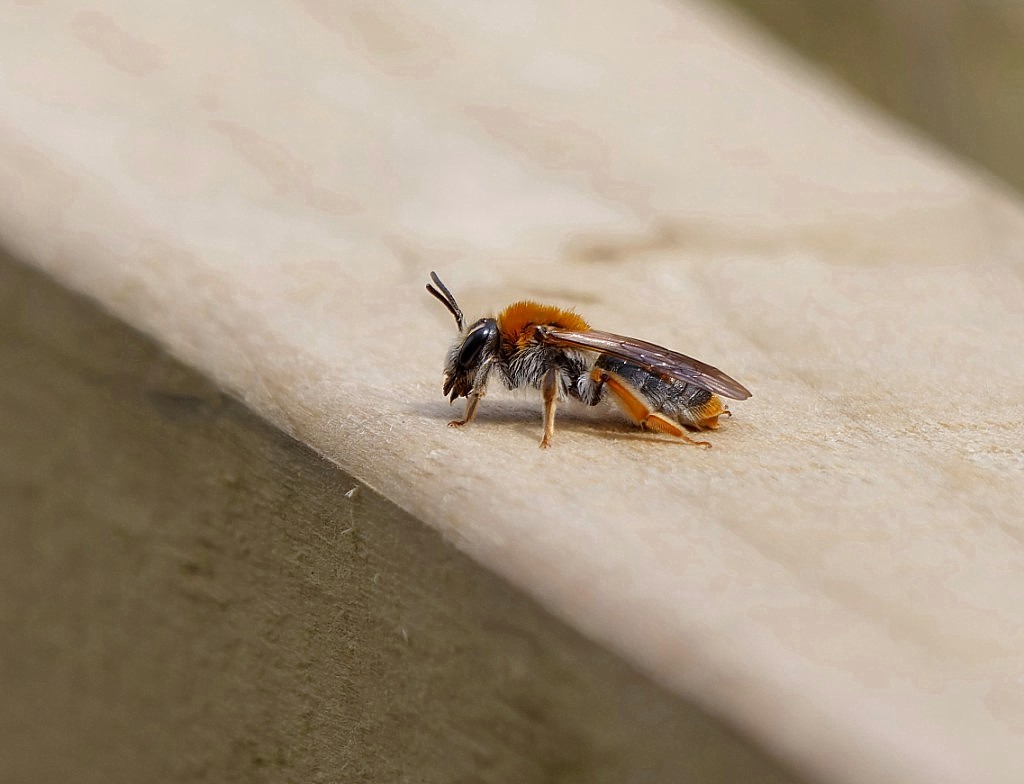Woolston Eyes Monthly Sightings
2024-05-31
May Butterflies. In spite of the generally mild conditions there was a lot of rain and very few sunny days. As a result butterflies were few and far between. Orange Tips continued to be seen in reasonable numbers and there were several sightings of Brimstone. Small numbers of Peacock, Small Tortoiseshell, Small White, Green-veined White and Speckled Wood were present. There were a couple of reports of Small Copper and a single Painted Lady on the 18th. A single Common Blue was on the Butterfly Transect on the 31st.
Submitted by: David Hackett
2024-05-28
Not been my best week or so, losing my camera to rain damage and then managing to fracture a couple of ribs! Making use of my current inactivity to clear some memory cards and found these very brief clips of some of the less common birds seen this month. The link is to a video showing: our first ever breeding attempt by Lesser Black-backed Gulls, a drake Garganey, Black-necked Grebes, an adult Little Gull, a Whimbrel and a couple of Avocets. Click here to watch David’s video or copy the link below into your browser https://youtu.be/aJxqhAGPXBE Cheers David Bowman
Submitted by: David Bowman
2024-05-27
No.4 bed - Little Egret
Submitted by: John Blundell re info Dan Owen
2024-05-26
No.3 bed - Marsh Harrier, 29 Swift, 12 Swallow, 7 House Martin
Submitted by: John Blundell re info Doid
2024-05-25
Bollin Point -Common Tern, Mandarin Duck
No.3 bed - Grasshopper Warbler, Garganey, Marsh harrier, Cuckoo, Ringed-necked Parakeet
No.4 bed - Greenshank, Ringed Plover, 2 Hobby
Submitted by: John Blundell re info David Spencer, Mike Miles, Dan Owen
2024-05-24
No.4 bed - Cuckoo, 300 Swift, 100 House Martin
Submitted by: John Blundell re info Dan Owen
2024-05-22
No.3 bed - Kittiwake over flying south
Submitted by: John Blundell re info John Tymon
2024-05-21
It’s been a very interesting week, with the good weather bringing in some nice birds, including Avocets, Cuckoos, Sandwich Tern, Turnstone, Greenland Wheatear and Kittiwake. Today was another warm one with sightings including: 1 Dunlin, a pair of feral Barnacle Geese with 5 young, the first Pochard brood reported, a drake Garganey, a Black-tailed Godwit and a Hobby. Our main focus, though, was on doing a dragonfly survey of the two wetland cells on No.4 bed. As well as getting some substantial counts of the regular species, we were treated to a real surprise. Dan had spent the previous weekend down in Gloucester and had seen his first Scarce Blue-tailed Damselflies, a very scarce and endangered species which is rare in Cheshire. Having learned their characteristics he was determined to find the first one ever for the Reserve. Didn’t take him long, either - a stunning, orange immature female of the aurantiaca form perched at the water’s edge! Final counts were: 1 immature female Scarce Blue-tailed Damselfly, 4 Banded Demoiselles, 4 Emperors, 119 Red-eyed Damselflies, 58 Black-tailed Skimmers, 54 Broad-bodied Chaser and 85 4-Spotted Chasers. Dan’s photo of the female Scarce Blue-tailed Damselfly Cheers David (with Dan Owen)
Submitted by: David Bowman
2024-05-18
No.1 bed - Greenland Wheatear and butterflies; Painted Lady, Small Copper & 1st Emperor Dargonfly
Submitted by: John Blundell re info David Bowman
2024-05-17
No.3 bed - Cuckoo calling, at least 12 (probably 14) Black-necked Grebe and 9 on No.4 bed
Hobby & 3 Swift over R. Mersey just west of No.4 bed
Pair of Hobby hunting and displaying, south Warrington
Submitted by: John Blundell re info Mike Miles, Dan Owen, Doid & Matt Atkin
2024-05-15
No.1 bed - 2 Mandarin males on west pool flew off east, Wheatear, Sandwich Tern flew over heading west at 10:50
No.4 bed - Turnstone on west cell
Submitted by: John Blundell re info David Riley & Dan Owen
2024-05-14
No.1 bed - Cuckoo calling from Butchersfield old Tip
No.4 bed - Common Tern mobile between Nos. 3 and 4 beds. 2 Black-tailed Godwit, Mediterranean Gull
Submitted by: John Blundell re info David Spencer & Dan Owen
2024-05-13
No.1 bed - Hobby flew over south 11:00hrs
No.3 bed - Little Egret
No.4 bed - Kittiwake 2nd calendar year, Ringed Plover circled the bed
Submitted by: John Blundell re info David Riley, Keith & Dan Owen
2024-05-12
No.4 bed - 2 Black-tailed Godwit, Mediterranean Gull
Submitted by: John Blundell re info Dan Owen
2024-05-11
A perfect spring day at Woolston started with 3 Avocets and 4 Black-tailed Godwits dropping into No.4 bed, where at least 14 Black-necked Grebes and a drake Garganey were also present. With the heat rising and conditions ideal for emerging dragonflies we then set off to survey the east cell of the No.4 bed wetland and the chain of small pools on No.1 bed. Across the two areas we counted over 1,000 dragonflies, including: 16 Large Red Damselflies, 26 Broad-bodied Chasers, 79 4-Spotted Chasers and 955 “blue” damselflies. We finished with lunch in a somnolent No.3 bed, where a female Garganey showed briefly. Photo of an Avocet Cheers David Bowman (with Dan Owen, Helen Wynn and Brian Baird)
Submitted by: David Bowman
2024-05-09
No.1 bed - 4 Four-spotted Chaser, 3 Broad-bodied Chaser, 7 Large Red Damselfly
No.2 bed - Whimbrel over, 2 Small Copper butterflies & 5+ Small Yellow Underwing moths
No.4 bed - 5 Mediterranean Gull, 2 Yellow Wagtail, Banded Demoiselle, Common Blue Damselfly, 3 Broad-bodied Chaser
16 singing Garden Warbler across the Reserve
Submitted by: John Blundell re info Dan Owen
2024-05-07
Photo of a Common Carder Bumblebee on Solomon’s Seal. Cheers David
Submitted by: David Bowman
2024-05-07
It was a quieter day, with little movement other than 100 or so Swifts, a few Swallows and Sand Martins, a single Yellow Wagtail and a couple of Mediterranean Gulls. So, the focus was initially on our breeding birds, which included: 17 Black-necked Grebes, 1 Garganey, 2 Grasshopper Warblers, 2 Garden Warblers, a feral pair of Barnacle Geese, our first Lapwing brood, at least 10 broods of Coot and maybe 200 plus pairs of Black-headed Gulls at the No.4 bed colony. Most interesting, though, was the sight of a Lesser Black-backed Gull clearly brooding eggs at a nest on one of the No.3 bed rafts. This is the first breeding attempt by this species, which has taken advantage of the dearth of breeding Black-headed Gulls on the bed since the population was decimated by Bird ‘Flu. As the morning became muggy and warm, we switched our attention to the insect world and were pleased to find our first dragonflies of the year, with 2 Blue-tailed and 29 Azure Damselflies around the banks of No.3 bed. Photo of a Green-veined White butterfly Cheers David Bowman (with Dan Owen)
Submitted by: David Bowman
2024-05-06
No.3 bed - Marsh Harrier, 7 Black-necked Grebe
No.4 bed - Garganey, 2 Mediterranean Gull over
Submitted by: John Blundell re info John Haddock, David Riley & Tim Leedham
2024-05-05
An Osprey was reported over Epping Drive, Woolston at 10:30hrs.
Submitted by: John Blundell re info Dan Owen
2024-05-04
The weather gods were kind to us this morning, as we settled onto the viewing platform on Bed 4 under grey skies . We’ve been waiting for most of the spring for that ideal combination of southerly (or easterly) winds, with overnight rain and drizzle at dawn, in order to experience a really good visible passage. Early on, waders started moving, with 2 Ringed Plovers and a steady trickle of Dunlin coming in from the east. Within the first hour or so 48 Dunlin had passed through, with a few of them landing to feed before moving on - an exceptional count by our standards. Out on the water a rosy-hued adult Little Gull, a scarce visitor en route to its Fenno-Scandian breeding grounds, was hawking and a single Whimbrel was resting on the muddy edge of one of the islands. By mid-morning a few terns had started moving, with 5 Arctic and 2 Common Terns arriving, along with 2 more Whimbrels. The morning was capped, though, when Dan picked up a female Lesser Scaup at the far side of the west cell, paired with a male Tufted Duck. While this was almost certainly the same bird which had been regularly present earlier in the year, it was still good to see this rare visitor from North America. Photo of an Arctic Tern Cheers David Bowman (with Dan Owen and Helen Wynn)
Submitted by: David Bowman
2024-05-02
April Butterflies. Given the unusually wet and cold conditions throughout the month it was hardly surprising that our butterflies struggled and relatively low numbers were recorded. Maximum totals were 36 Orange Tips, 8 Small Tortoiseshells, 2 Brimstones, 25 Peacocks, 3 Green-veined Whites, 2 Small Whites, 3 Speckled Woods and 1 Holly Blue.
Submitted by: Dave Hackett
2024-05-02
Despite the strengthening southerlies at Woolston this morning, there was little evidence of visible migration. There were still plenty of birds to see, though, with highlights of: Garganeys, Black-necked Grebes, Little Ringed Plover, Yellow Wagtails, Common Sandpiper, Garden Warbler and Common Tern. Aerial feeders were much less evident than recently, with just 45 Swifts, 50 Sand Martins and a handful of Swallows. As the day warmed up, we switched our attention to photographing some of the myriad insects, which are another special aspect of the Reserve’s wildlife, the photo is of a species of mining bee. There were also a few butterflies around No.3 bed with: 9 Orange Tips (7 males), 4 Small Tortoiseshells and 2 Peacocks. There was also a damselfly in flight along the canal track but not seen well enough to identify. Cheers David Bowman (with Dan Owen)
Submitted by: David Bowman
2024-05-01
No.1 bed - 2 Arctic Tern over
No.4 bed - 4 Mediterranean Gull, Redshank
Good Garganey passage overnight with 9 individuals counted early morning
Submitted by: John Blundell re info Dan Owen
